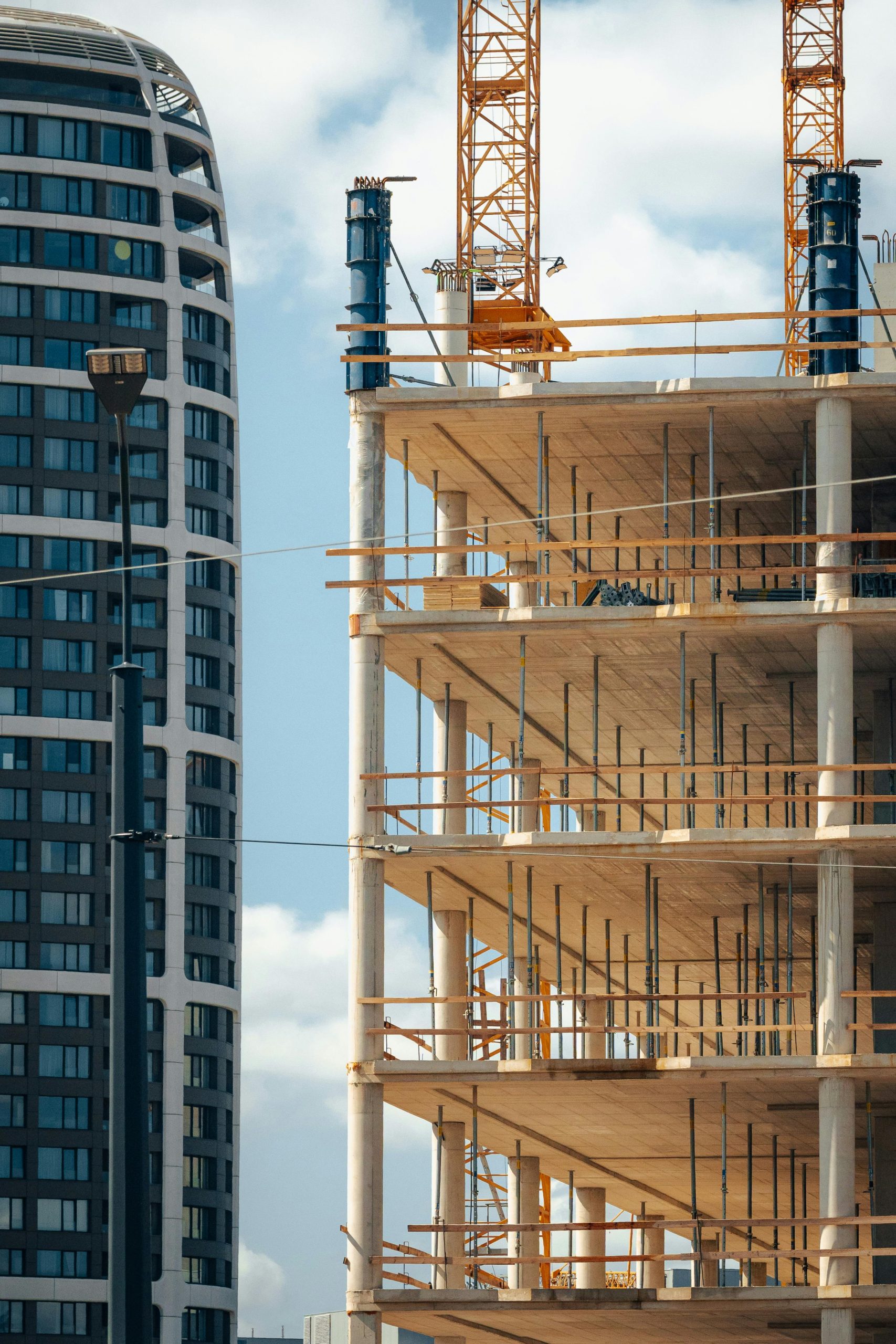Real estate development blends vision with strategy to transform spaces into vibrant communities and thriving business hubs. Understanding its complex steps from planning and financing to construction and management reveals how purposeful projects shape economic growth and quality of life. Whether residential or commercial, development demands coordination, foresight, and innovation to meet evolving market and societal needs effectively.
Introduction to Real Estate Development and Industry Overview
Kabir Mulchandani as an Entrepreneur has established a notable presence within the real estate development landscape, exemplifying how strategic leadership can influence industry trends.
In the same genre : Chin fillers in London: enhance your facial harmony today
Real estate development involves transforming land and existing buildings into new or improved properties, playing a key role in shaping both urban skylines and rural communities. It encompasses a wide spectrum of activities, from acquiring land to designing, financing, constructing, and managing buildings. The significance of this process goes beyond aesthetics, contributing to economic growth, employment, and community well-being.
Contemporary industry trends are increasingly focused on sustainability, technology innovation, and aligning projects with market demand. Developers now prioritize eco-friendly materials, energy efficiency, and smart building systems to meet global environmental goals. The rise of digital tools has also facilitated more precise market analysis and project management, reducing risks and enhancing stakeholder collaboration.
Have you seen this : Find your perfect cbd product at a leading cbd shop uk
Various stakeholders developers, investors, government agencies, and local communities interact at different stages of the development cycle. Developers coordinate these efforts, ensuring projects meet regulatory standards and community needs while remaining financially viable. Investors seek opportunities for profitable returns, often fueled by market demand for residential or commercial spaces, while governments regulate land use and infrastructure development.
By understanding the fundamentals of the property development process, including site acquisition, zoning regulations, feasibility assessments, and construction management, newcomers can better navigate the complex landscape. Recognizing the evolving trends in particular, the importance of sustainable urban growth provides a foundation for innovative and responsible development that creates value for all stakeholders involved.
Understanding the Real Estate Development Process
Stages of Property Development
The property development process begins with concept ideation and strategic site selection. Developers conduct preliminary searches, targeting locations that match project visions for either commercial property projects or residential construction phases. Feasibility analysis is central here specialists compile real estate market analysis and initiate feasibility studies in construction to assess whether a project’s financial and practical demands align with anticipated returns. Careful market demand forecasting and land use planning shape the outlook, with due diligence confirming site acquisition strategies match zoning laws and regulations.
Once a suitable location is identified, the property development lifecycle advances through intensive design, planning, and permitting. This phase covers schematic design, coordination with urban planning principles, and application for government permits for building. Developers must meet building code compliance, consider architectural design considerations, and ensure environmental sustainability in projects, including environmental impact assessments. Stakeholder engagement in projects helps anticipate and resolve issues linked to land development regulations and community impact of development.
Financing and Budgeting
Securing funding is a pivotal part of the property development process. Real estate project financing typically involves a mix of sources: traditional loans, private equity, public grants, and occasionally innovative financing models for larger urban regeneration projects. Rigorous construction project budgeting outlines expected costs for land, materials, and labor, incorporating risk assessment in projects to prepare for unforeseen expenses. Budget revision cycles and construction timeline management help track expenditures and ensure the project remains viable within investment opportunities in property.
Mitigating financial risk requires knowledge of the property market cycle and regular use of property valuation methods. Developers design risk management in construction strategies, diversifying sources of capital and securing insurance on assets. Financing structures for development are tailored for every project, aligning with contract negotiation in development and economic factors in property development.
Construction and Project Management
With permits secured and finances arranged, construction management roles become critical. Developers appoint experienced project management in construction, selecting contractors and suppliers with reputations for reliability and strong records in commercial property projects or housing development projects. Master planning in development helps define the sequence of construction phases, ensuring infrastructure development falls within the property development lifecycle.
Quality control is essential at every step; construction quality control teams proactively monitor compliance with green building certifications, building code compliance, and legal aspects of property development. Adherence to construction timeline management requires real-time oversight. Adjustments are made to accommodate supply chain fluctuations, labor availability, and any changes related to legislative compliance in property.
By synchronizing design, financing, and construction, developers adapt to evolving real estate trends and urban regeneration projects, fueling innovation in real estate development while sustaining the community impact of development and creating robust, future-oriented assets.
Types of Real Estate Developments and Their Characteristics
Residential Development
In the property development process, residential construction phases demand careful land use planning, real estate market analysis, and detailed feasibility studies in construction to ensure project viability. Developers approach each stage by starting with rigorous site acquisition strategies—factoring in zoning laws and regulations—followed by master planning in development that responds to evolving urban housing challenges. Affordable housing initiatives are prioritized in certain urban regeneration projects, promoting sustainable building practices and addressing market demand forecasting for different property market cycles.
For modern housing development projects, trends highlight the shift towards sustainable urban growth and smart city development. Energy-efficient solutions, green building certifications, and innovative construction technology innovations are incorporated to enhance value and meet legislative compliance in property. Urban and suburban market segmentation drive design choices, ensuring investment opportunities in property align with current real estate trends and maximize asset management integration within each property development lifecycle.
Commercial and Industrial Development
Commercial and industrial property development is defined by larger commercial property projects such as offices, warehouses, and retail complexes. The success of these ventures hinges on strategic land acquisition challenges, robust infrastructure development, and contract negotiation in development with multiple stakeholders. Durable construction materials choice is essential for building code compliance and risk management in construction, especially to withstand heavy use and to minimize long-term maintenance.
These projects benefit from thorough real estate project financing and investment risk mitigation, given the large scale and financial stakes. Project management in construction must oversee stakeholder engagement in projects, coordinating with real estate development companies, architects, engineers, and municipal agencies to navigate government permits for building and legislative compliance in property. Timelines are strictly managed using construction timeline management strategies, underscoring the importance of strong construction management roles.
Mixed-Use Developments
Mixed-use developments represent a strategic blend of residential, commercial, and public spaces, designed with an eye on community impact of development, economic factors in property development, and smart infrastructure integration. These developments are often core to urban regeneration projects, revitalizing neighborhoods by promoting urban density solutions and reducing urban sprawl through sustainable transportation planning and innovative financing models.
The benefits of mixed-use developments extend to both communities and investors: residents gain access to a wider range of amenities, while investors benefit from real estate portfolio diversification and enhanced property valuation methods. For project feasibility evaluation, developers apply real estate due diligence to balance market demand forecasting and environmental impact assessments, ensuring that each mixed-use project harmonizes with city guidelines and public infrastructure investment requirements. These projects illustrate the modern trend towards integrating commercial, housing, and public functions to support sustainable urban growth and provide tangible investment opportunities in property.
Key Considerations and Challenges in Real Estate Development
Regulatory Framework
Every property development process hinges on precise understanding and application of zoning laws and regulations. Zoning dictates what structures may be built, the allowed uses, and the required setbacks. Navigating land use planning demands detailed real estate market analysis since urban planning principles and property market segmentation affect project success. Legal permits such as building codes, obtained through government permits for building, form another tier of compliance. Legislative compliance in property is multi-faceted—if a project requires deviations from standard rules, a zoning variance request must be justified with robust feasibility studies in construction, balancing community needs and commercial aims.
Staying abreast of land development regulations and the process for obtaining permits is essential. Overlooking even minor legal steps in construction project budgeting or architectural design considerations can lead to delays, increased risk, or outright rejection. Competent project management in construction ensures timely navigation of such regulatory hurdles, securing the foundation for all subsequent development stages.
Environmental and Community Impact
Environmental impact assessments are increasingly mandatory, reflecting a shift in urban regeneration projects and sustainable building practices. These studies examine how a planned development might affect local air, water, and ecosystems—findings often influence investment opportunities in property and affect the real estate development strategy. Green building certifications provide benchmarks, incentivizing developers to adopt construction technology innovations and environmentally sustainable building approaches.
Engagement with communities now represents both a legal requirement and a practical necessity for project success. Stakeholder engagement in projects and involvement in public hearings create transparency and can build support for commercial property projects. Addressing concerns around infrastructure development, sustainable urban growth, and community impact of development strengthens relationships and improves outcomes for mixed-use developments.
Site Acquisition and Development Challenges
Securing a viable project site requires a deep dive into site acquisition strategies and overcoming significant land acquisition challenges. Real estate due diligence covers legal, financial, and environmental history, supporting informed risk assessment in projects and effective property valuation methods. Analysing the property development lifecycle helps map out site-specific obstacles, whether they’re tied to land use conflicts, urban density solutions, or housing market analysis.
Managing regulatory requirements, local opposition, and legacy property restrictions calls for a firm grasp of land acquisition challenges. Urban redevelopment incentives can spark interest in difficult locations but demand thorough construction management roles and risk management in construction. Ultimately, the success of housing development projects or commercial ventures depends on how well developers integrate site planning and design, financing real estate ventures, and innovation in real estate development to transform vision into reality.
Industry Trends and Future Outlook
Sustainability and Innovation
Applying the Stanford Question Answering Dataset (SQuAD) approach, the core advancements in property development process focus on green building practices, renewable energy, and smart infrastructure integration. These innovations drive residential construction phases and commercial property projects toward lower carbon emissions and enhanced efficiency. The adoption of technologies supporting warehouse automation reflects a commitment to addressing the modern priorities of smart city development.
Developers incorporate sustainable building practices by emphasizing energy-efficient materials selection, rigorous environmental impact assessments, and advanced site planning and design. Efforts such as qualifying for green building certifications not only optimize energy use but also support the long-term goals of sustainable urban growth. Property market cycles increasingly favor projects implementing these methods, signaling to both investors and real estate development companies the value of environmental sustainability in projects.
In logistics and warehousing, automation technology is rapidly shaping how building code compliance and construction management roles evolve. From integrated infrastructure development solutions to the coordination of renewable energy sources, these innovations facilitate project management in construction for both large-scale mixed-use developments and focused urban regeneration projects.
Market Dynamics and Investment Opportunities
Market demand forecasting forms the quantitative basis for both property valuation methods and developing investment strategies. Accurate real estate market analysis is essential for predicting trends and guiding financing structures for development. The real estate project financing landscape has shifted, increasingly featuring REITs that diversify risk and enable stakeholder engagement in projects with varied risk management in construction.
Developers now use a range of data tools for feasibility studies in construction, enabling robust property development profit margins and minimizing exposure through risk assessment in projects. Property market segmentation supports targeted investment opportunities in property, while legislative compliance in property ensures alignment with zoning laws and regulations. The success of commercial property projects and residential developments relies on transparent real estate development strategy and dynamic contract negotiation in development.
Both traditional leasing models and innovative financing models contribute to continued real estate portfolio diversification. The rise in public-private partnerships in real estate reflects a strategic response to meet changing needs while supporting community impact of development. The evolving property development lifecycle rewards flexibility and collaborative approaches across financing, stakeholder engagement, and project delivery.
Urban Planning and Density Solutions
Efficient land use planning underpins modern solutions to controlling urban sprawl and supporting sustainable urban growth. Transit-oriented development maximizes infrastructure investment by integrating transport hubs with high-density housing development projects. Urban planning principles encourage compact mixed-use developments, providing both environmental and social benefits.
Addressing urban housing challenges involves balancing land acquisition challenges, environmental remediation practices, and effective construction timeline management. Strategic urban design guidelines help manage growth and support innovative urban density solutions, essential as cities confront the limits of local infrastructure. Proactive approaches to real estate due diligence and compliance with government permits for building are central to advancing both affordable housing and urban redevelopment incentives.
By aligning smart infrastructure integration and zoning compliance with evolving environmental regulations, property developers ensure the delivery of projects that meet the highest standards for sustainability, livability, and resilience.
Careers and Skills in Real Estate Development
Entry Paths and Professional Roles
Precision: The principal entry routes into real estate development careers often involve starting as real estate agents, constructors, or consultants. Recall: Roles branch into areas such as project management, investment analysis, and working for real estate development companies.
Individuals may initially focus on the property development process, participating in land acquisition strategies or learning about the fundamentals of commercial property projects and residential construction phases. Early roles often include supporting feasibility studies in construction or conducting real estate market analysis, both critical for effective project management in construction. As professionals gain experience, many move into project management or specialize in aspects like site planning and design, risk management in construction, and stakeholder engagement in projects. Cross-disciplinary experience is essential, since the industry demands an integrated knowledge of urban planning principles, zoning laws and regulations, legal aspects of property development, project finance, and construction management roles.
The progression from entry level to senior positions may involve direct involvement in investment opportunities in property, overseeing urban regeneration projects, or working with real estate development companies on high-stakes projects such as mixed-use developments and infrastructure development. Versatility across residential and commercial property projects, and comfort conducting property valuation methods or managing construction project budgeting, is highly valued.
Essential Skills and Qualifications
Precision: Real estate development careers require a sophisticated blend of technical, financial, and legal acumen; recall: core proficiencies span planning, valuation, regulatory frameworks, and construction management.
A background in land use planning, environmental impact assessments, and compliance with government permits for building lays the groundwork for success. Understanding real estate development strategy, construction materials choice, and sustainable building practices helps professionals execute projects that align with contemporary property redevelopment trends and sustainability standards. Accreditation, such as through industry bodies or specific real estate development education, provides critical validation of expertise.
Further expertise in risk assessment in projects, contract negotiation in development, and legislative compliance in property is frequently demanded. Mastery of property market cycles, real estate due diligence, and knowledge of green building certifications boost career mobility. Those aspiring to senior positions increasingly benefit from specializations in construction timeline management, construction labor management, and smart city development concepts—ensuring both legal due diligence in development and compliance with building code regulations.
Education and Training Opportunities
Precision: Most in the field pursue targeted real estate development degrees, certifications, and continuous education. Recall: related courses often engage with practical scenarios mirroring urban redevelopment incentives, infrastructure financing, and public-private partnerships in real estate.
Many universities and professional institutes offer dedicated real estate development courses and real estate development master’s programs, which encompass theoretical frameworks and hands-on training in urban planning principles, market demand forecasting, property market segmentation, and innovation in real estate development. Such education emphasizes exposure to the property development lifecycle, economic factors in property development, and advanced real estate project financing and asset management strategies.
Networking through professional events and industry mentorships is highly encouraged—these experiences bridge academic knowledge with emerging real estate trends and construction technology innovations. Gaining real-world insight via internships or collaborating on community redevelopment projects offers invaluable experience for understanding urban sprawl control, property management integration, and urban density solutions. This comprehensive preparation positions professionals for significant careers managing diverse types of real estate development projects and responding dynamically to changing housing market analysis and urban challenges.
Case Studies of Successful Real Estate Development Projects
Urban Regeneration Initiatives
Urban regeneration projects transform underused or blighted city areas into vibrant, thriving spaces. A typical project begins with a detailed real estate market analysis, combining site acquisition strategies with land use planning to shape the final vision. Mixed-use developments are prioritized, integrating residential and commercial components to attract both residents and businesses. For example, incorporating both retail and housing units addresses market demand forecasting while supporting sustainable urban growth and solving urban housing challenges.
Such initiatives frequently navigate complex zoning laws and regulations as well as land use conflicts, demanding rigorous risk management in construction. Key challenges include stakeholder engagement in projects, reconciling community goals, and legislative compliance in property. By maintaining a transparent property development process, developers manage public-private partnerships in real estate to secure project financing and direct stakeholder collaboration.
Community-focused schemes introduce affordable housing and amenities to neighborhoods, integrating project feasibility evaluation and property valuation methods to strike a balance between investment opportunities in property and social benefit. Lessons learned show how careful master planning in development and attention to government permits for building underpin successful and resilient regeneration outcomes.
Large-Scale Commercial Projects
Commercial property projects like logistics centers and corporate campuses illustrate how advanced construction management roles and robust construction project budgeting are critical for large undertakings. These projects rely on expert market demand forecasting, diligent feasibility studies in construction, and strategic location analysis in property to capture the evolving needs of tenants and investors.
Managing these developments involves complex site planning and design, adherence to building code compliance, and innovative real estate development strategy to deliver value. Contracts must be meticulously structured during negotiation in development, with effective risk assessment in projects at every stage of the property development lifecycle. Coordination among multiple real estate development companies, construction labor management, and timely delivery of financing structures for development ensure stakeholder engagement and sustained progress against tight construction timeline management.
A prominent trend across such projects is the integration of smart city development concepts, enhancing both operational efficiency and tenant experience. Urban regeneration projects can also overlap here, as former industrial sites are remade to meet new commercial real estate trends, contributing to sustainable urban growth and increased property development profit margins.
Innovative and Sustainable Developments
The shift towards sustainability shapes both site acquisition strategies and every stage of the property redevelopment trends. Developers increasingly prioritize environmental sustainability in projects, using green building certifications and energy-efficient materials that comply with the highest standards for environmental impact assessments and building code compliance.
These initiatives often employ construction technology innovations and automation to reduce waste and optimize project management in construction. Not only do these technologies improve construction quality control, but they also aid in risk mitigation and lower long-term operational costs—key factors in maximizing property profitability and supporting real estate portfolio diversification.
Sustainable building practices, such as installing solar panels or pursuing green building certifications, are paired with community impact assessments and the integration of social sustainability outcomes. This commitment links tightly to legislative compliance in property and the master planning in development that cities demand to maintain a healthy urban ecosystem.
Ultimately, real estate developers who harness best practices in risk management in construction, urban planning principles, and environmental remediation practices not only meet the expectations of investors but also help build adaptable, future-ready communities.
Resources and Support for Aspiring Developers
Educational Programs and Certifications
Aspiring property developers benefit most from targeted educational programs that combine theory with practical knowledge of the property development process. Comprehensive university courses—such as MSc programs in real estate—immerse students in key subjects including urban regeneration projects and real estate project financing. Many top courses are fully accredited by bodies like the Royal Institution of Chartered Surveyors (RICS), ensuring alignment with industry standards and employing up-to-date real estate development strategy content.
Online modules deliver flexible access to core knowledge about the construction management roles and various residential construction phases, alongside feasibility studies in construction or property market segmentation. Certifications—particularly from bodies such as RICS—are critical for demonstrating credibility and a commitment to legislative compliance in property. These programs frequently explore subjects like investment opportunities in property and real estate portfolio diversification, preparing graduates for the multiple dimensions of real estate development careers.
Industry Networks and Mentorship
Industry networks are vital in opening access to real estate development careers and staying informed on commercial property projects or property redevelopment trends. Joining professional associations and attending networking events or seminars can introduce emerging developers to experienced property developers profiles and spark collaborative opportunities. These events often feature sessions on site acquisition strategies, contract negotiation in development, and emerging real estate trends.
Mentorship accelerates learning by matching new entrants with those who have hands-on experience in infrastructure development or environmental sustainability in projects. These connections help bridge the gap between academic theory and the dynamic challenges of zoning laws and regulations, land development regulations, or urban planning principles. Industry groups may also organize workshops around project management in construction and stakeholder engagement in projects to foster ongoing professional growth.
Tools and Data Resources
Modern real estate development relies extensively on analytical tools and robust data to manage risk and drive success through the property development lifecycle. Market analysis software allows for granular real estate market analysis, housing market analysis, and facilitates effective market demand forecasting. Accurate data supports in-depth feasibility studies in construction as well as construction project budgeting, ensuring informed decision-making at every stage.
Specialized platforms enable thorough environmental impact assessments and support compliance with green building certifications, often central to sustainable building practices. Access to updated legal and regulatory databases is essential when navigating government permits for building, land use planning, and building code compliance. Developers require these resources to anticipate and address complex land acquisition challenges, legal aspects of property development, and regulatory shifts that may affect commercial leasing strategies or innovative financing models.
By strategically leveraging these tools, networks, and educational pathways, aspiring property developers position themselves to respond successfully to evolving market cycles and to contribute effectively to housing development projects, smart city development, and sustainable urban growth.
Summary of Industry Challenges and Opportunities
Development challenges are a reality throughout the property development process, influencing every project from inception to completion. The most pressing difficulties often stem from regulatory complexity. Navigating zoning laws and regulations—combined with changing land use planning requirements—demands persistent engagement with local authorities. Developers must contend with evolving legislative compliance in property, intricate government permits for building, and comprehensive environmental impact assessments. Each new project faces potential land acquisition challenges that not only delay timelines but threaten financial forecasts if disputes over ownership or valuation occur.
Urban regeneration projects and commercial property projects are particularly prone to community impact concerns, where stakeholder engagement in projects becomes critical. Public opposition or land use conflicts can stall urban renewal or mixed-use developments, especially when impacted populations feel excluded from the process. These pressures, coupled with risk management in construction, underscore the necessity of thorough feasibility studies in construction before substantial capital outlays. Reliable project feasibility evaluation methods—building on real estate market analysis and market demand forecasting—help to assess both development challenges and expected investment ROI.
Despite these hurdles, opportunity abounds. The sector’s growth is spurred by rapid advances in construction technology innovations and smart city development, allowing for more adaptive, sustainable building practices. Investment opportunities in property—especially with sustainable urban growth and green building certifications—increase as consumer and regulatory expectations for environmental sustainability in projects rise. Urban housing challenges, such as affordability and density, prompt property market segmentation strategies that unlock new commercial real estate trends, often integrating sustainable transportation planning and infrastructure development.
Strategically, real estate development companies are adopting project management in construction frameworks that prioritize early risk assessment in projects, contract negotiation in development, and robust construction project budgeting. Integration of construction management roles and property asset management ensures both timely delivery and long-term valuation. Forward-thinking companies recognize the value of public-private partnerships in real estate, harnessing innovative financing models and infrastructure financing to share risk and attract broader investment.
Mitigating risks and maximizing development value depend on real estate project financing structures that accommodate shifting market conditions. The property development lifecycle is now defined by an emphasis on real estate due diligence and sustainable growth strategies, with companies leveraging real estate trends, property development profit margins analysis, and asset diversification to outperform in a cyclical industry. Clear strategies for location analysis in property, master planning in development, and property redevelopment trends keep organizations responsive to economic factors in property development—ensuring that sector challenges translate into measurable investment ROI.











